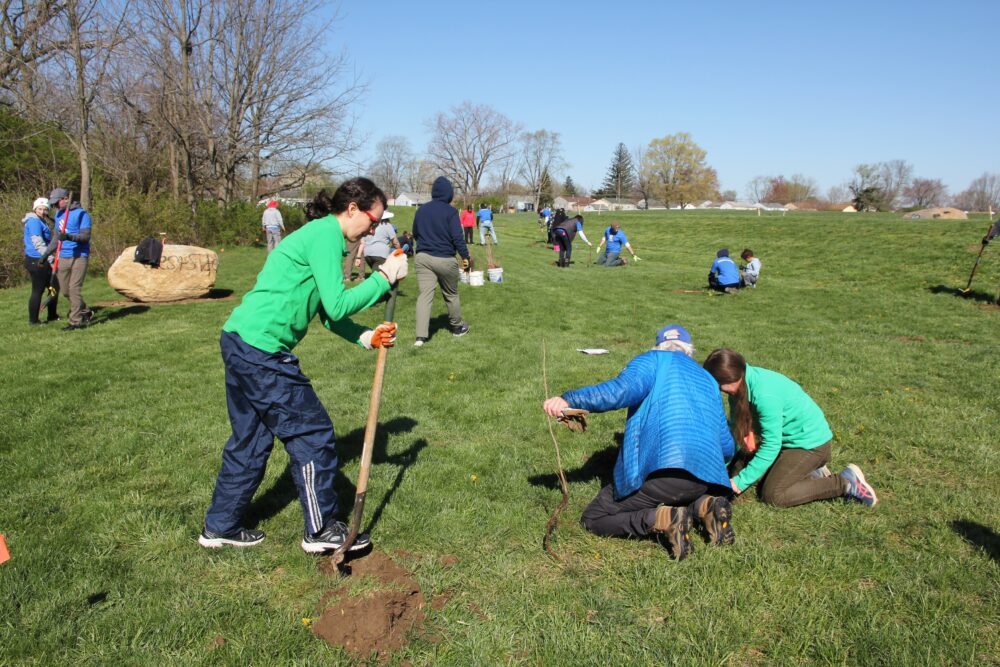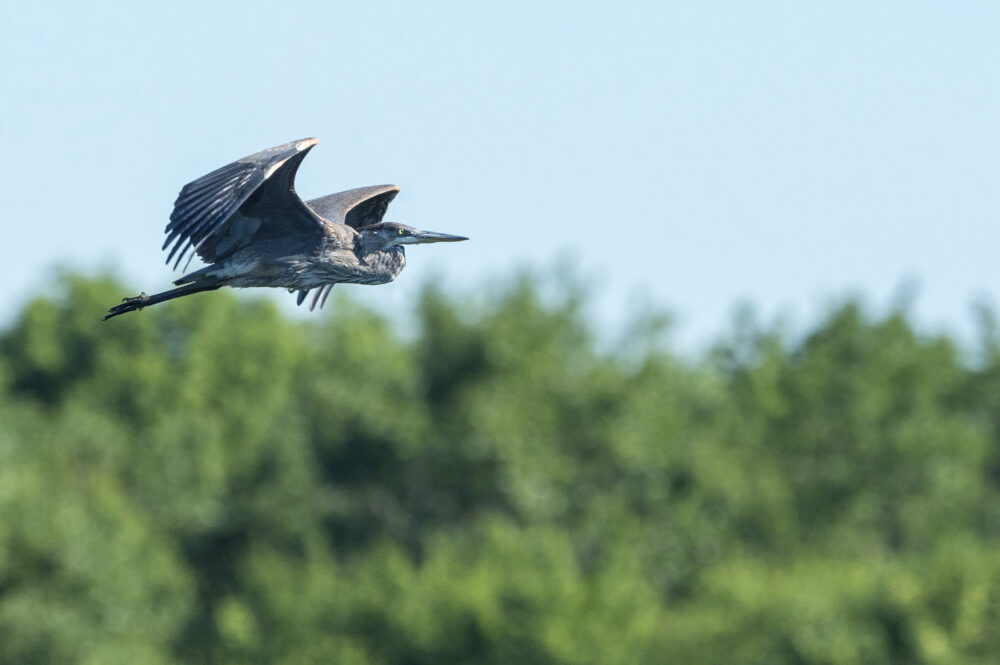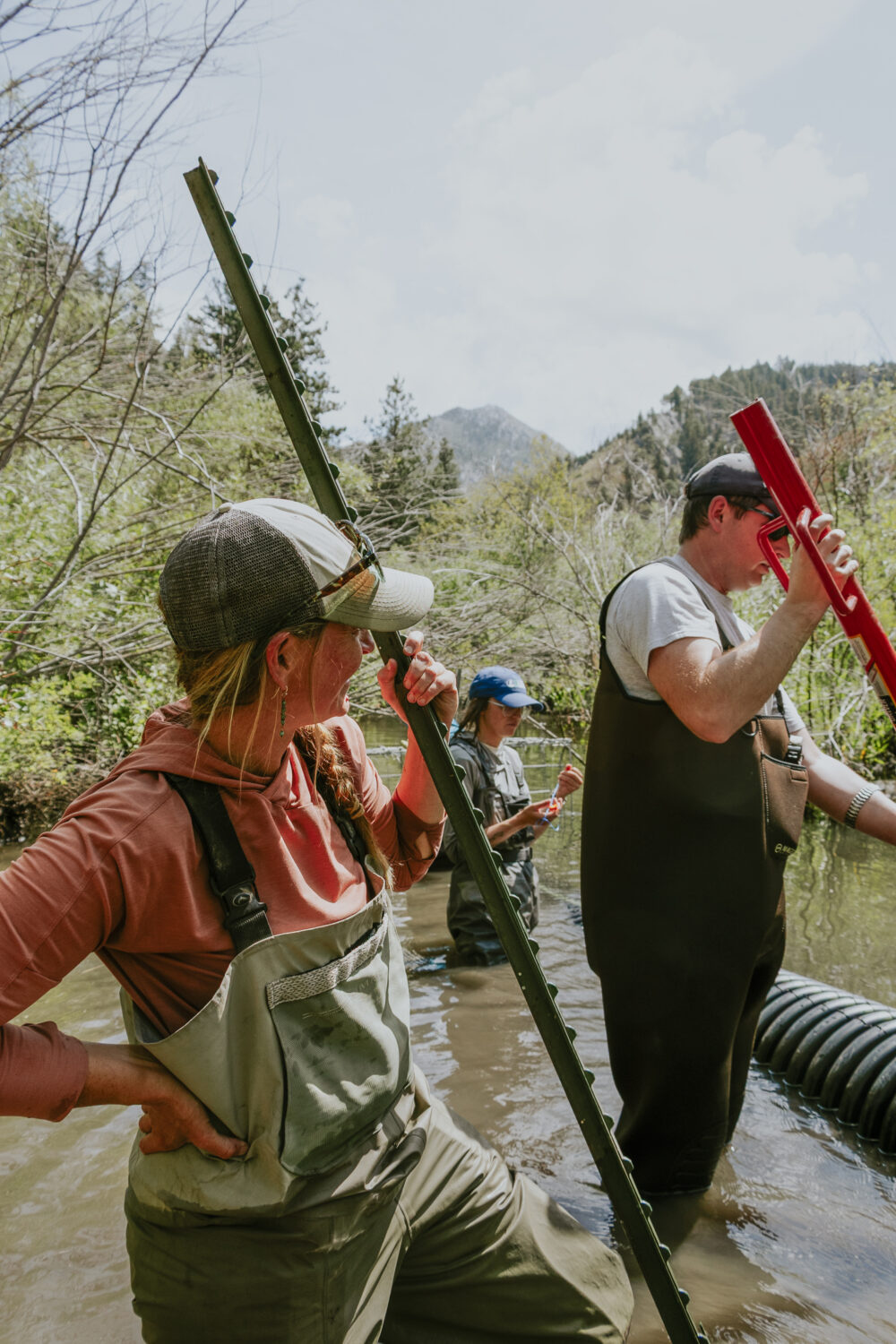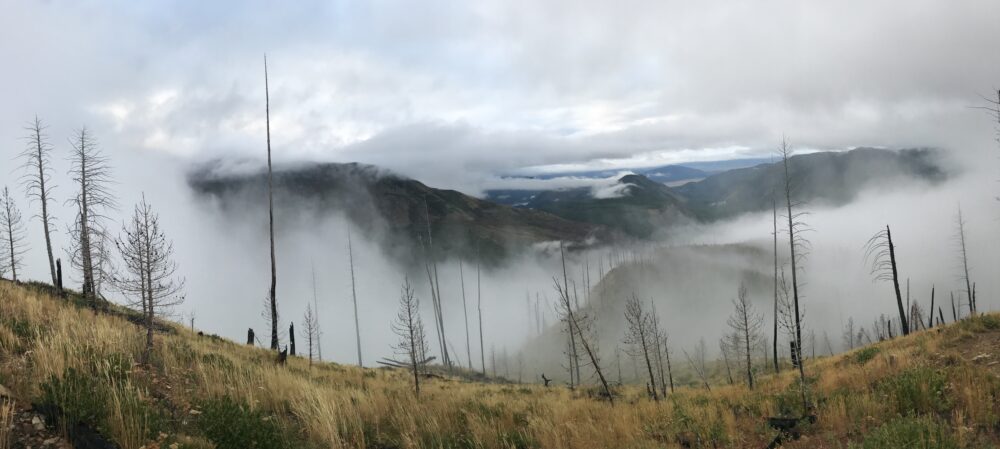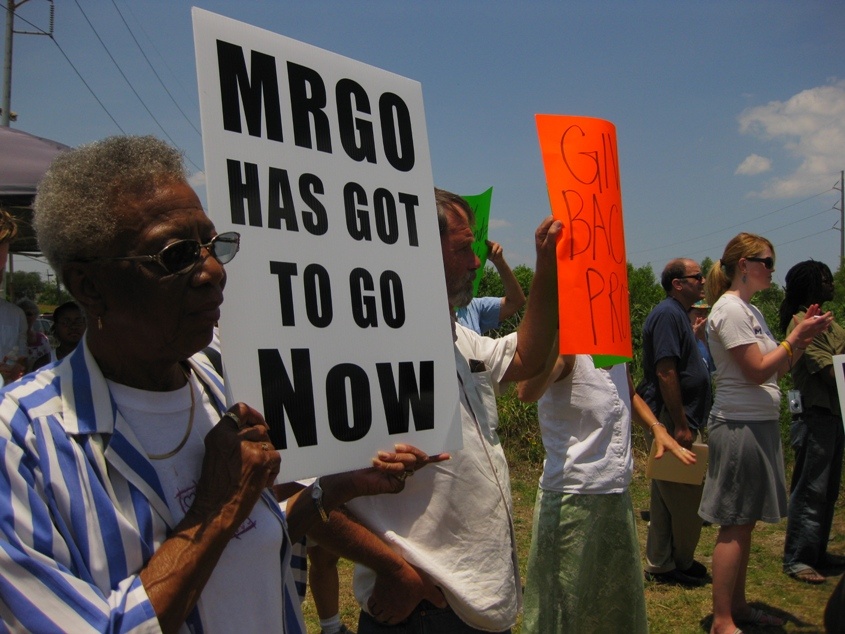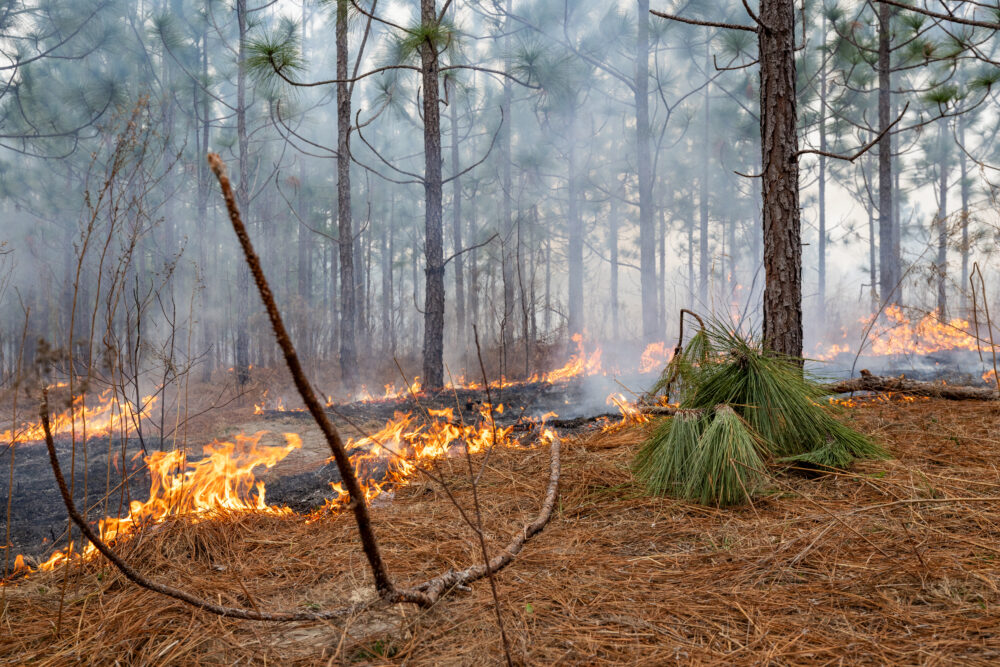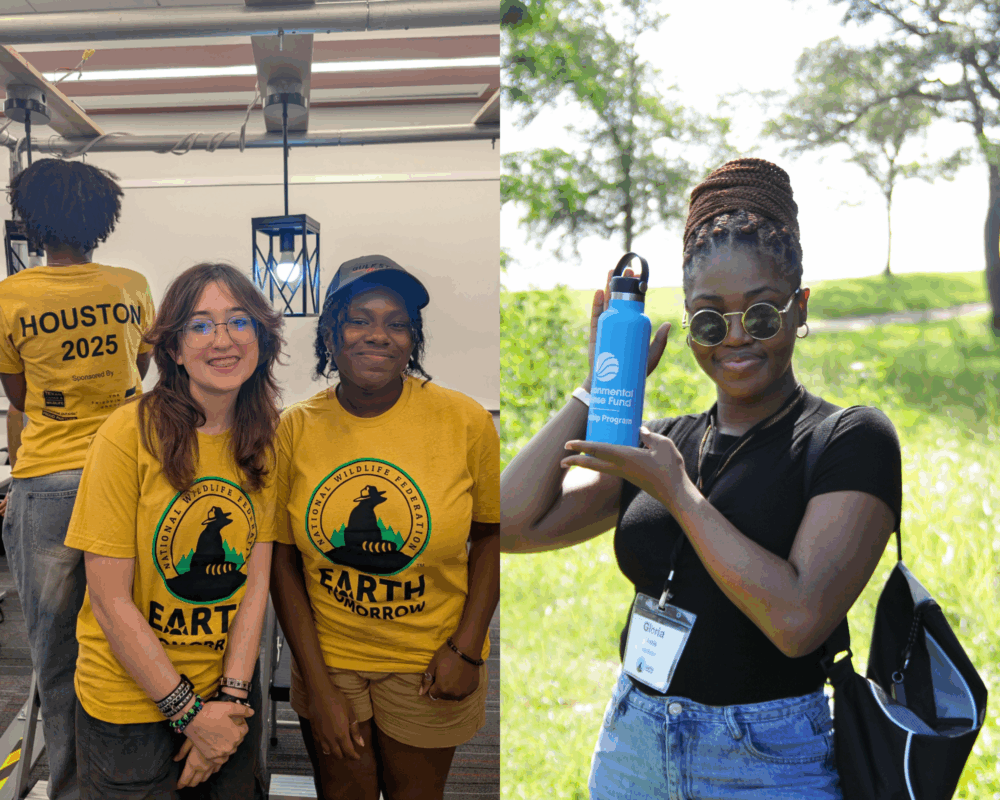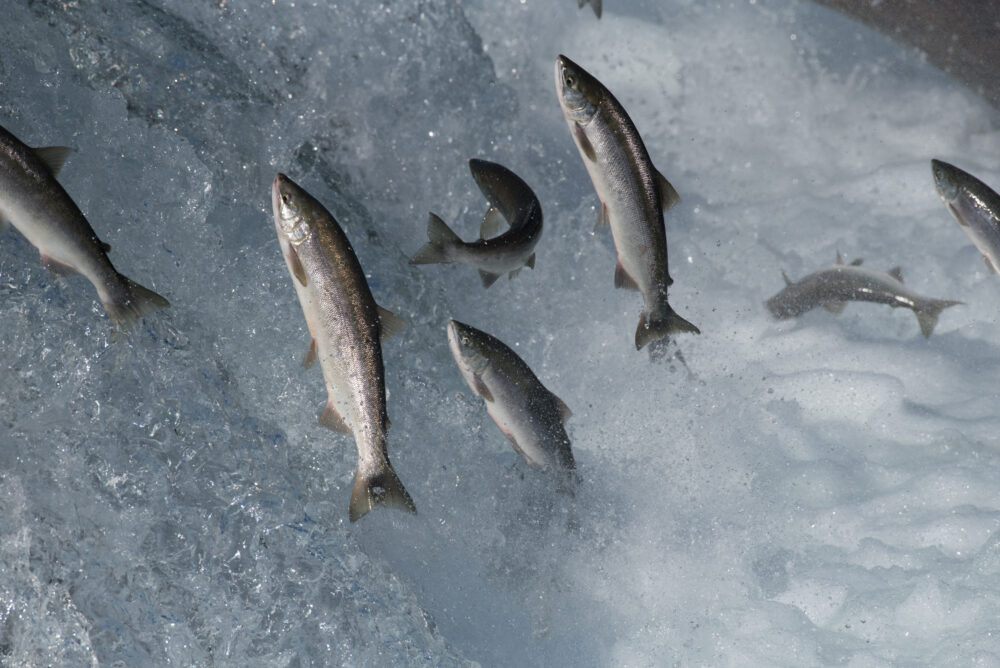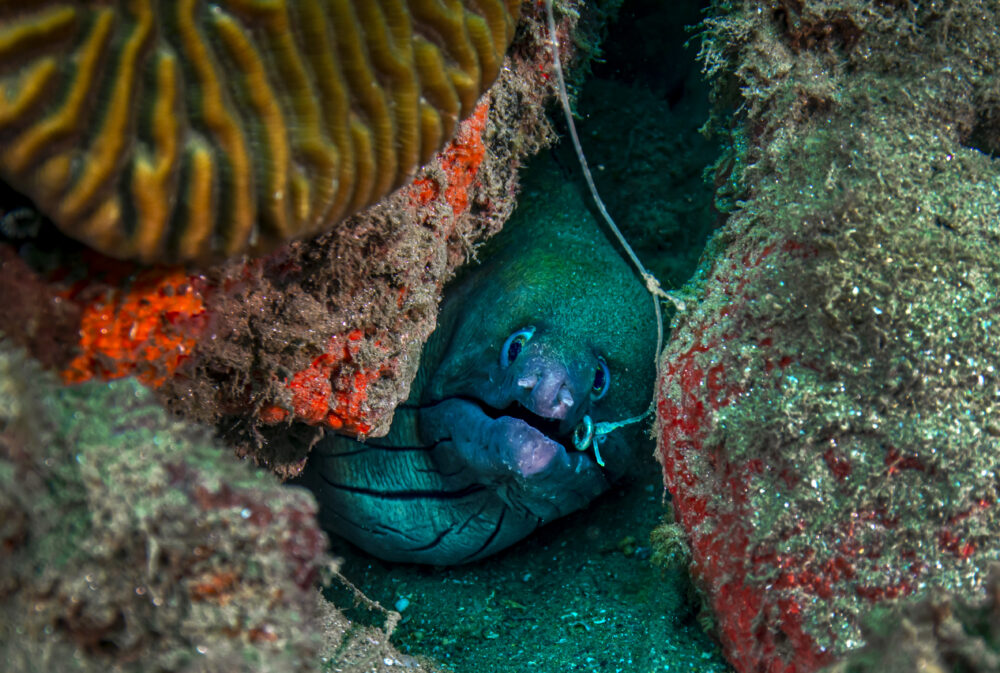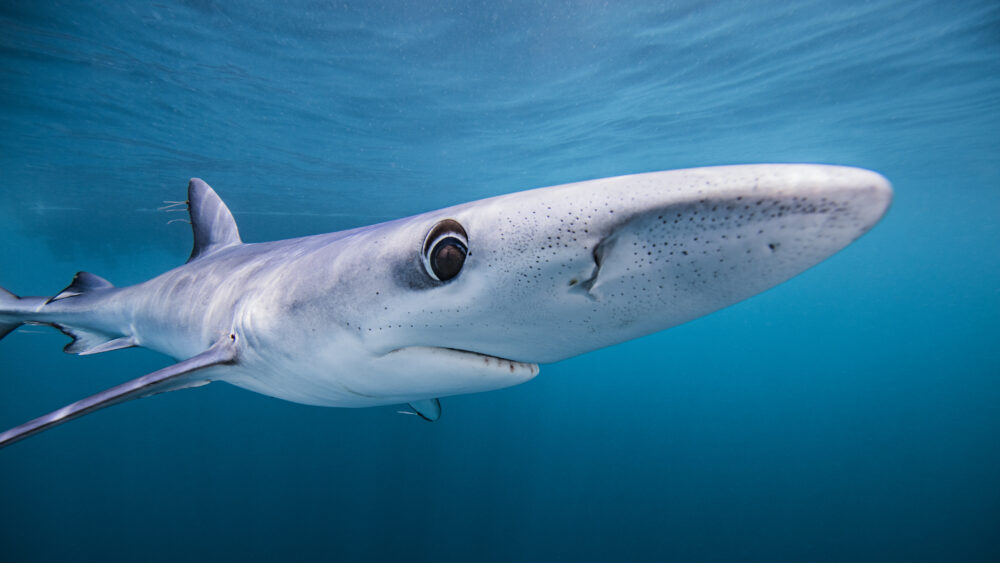We have much more to do and your continued support is needed now more than ever.
Pollinator Protectors: The Power of Youth Education in Safeguarding People, Pollinators, and the Planet
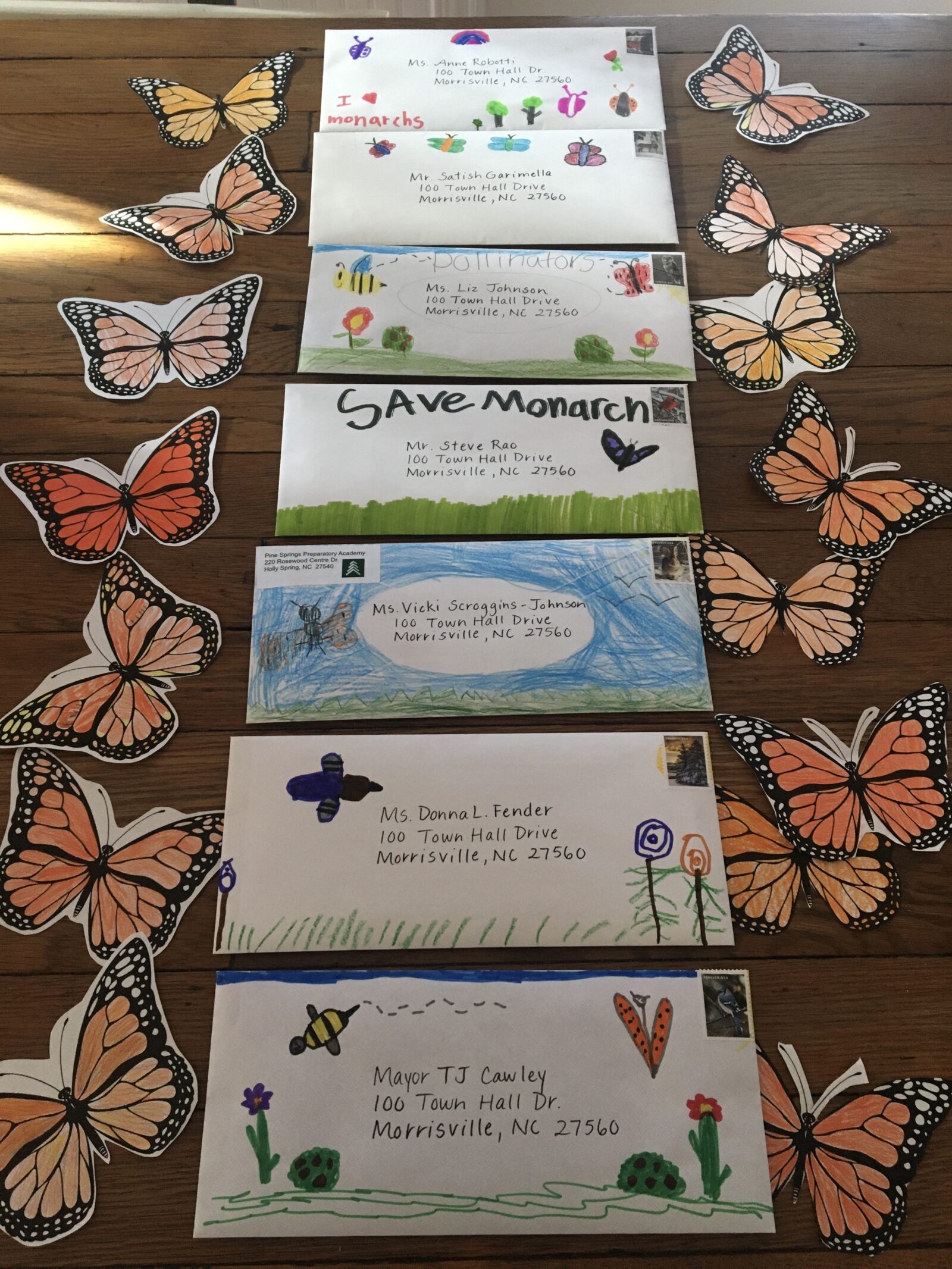
Knowledge, Compassion, and Action is at the heart of Katie Thompson’s teaching philosophy. In fact, it’s Ms. Thompson’s mantra. “First, I give my students knowledge – the ‘what, why and how’ of a topic. Once they really know something,” Ms. Thompson remarked, “then they start to care about it. When they care, then they want to act, to help make a difference.”
Ms. Thompson is the Global Education teacher at Pine Springs Preparatory Academy, a public charter school in Holly Springs, North Carolina, where she teaches 750 kindergarten through fifth-grade students. Galvanized by her lifelong instinct to protect the environment, Ms. Thompson focuses her third-grade lesson plans on the importance of pollinators.
“[Saving the pollinators] means saving us, them, the WORLD.“
Idali N., age 9
But knowledge and compassion are only part of Ms. Thompson’s education equation: next comes action. After learning about the indispensability of native bees, wasps, butterflies, moths, birds, bats, and other wildlife for the health of our planet, the third-graders are then empowered with the voices to make a difference. Every year, the students channel their newfound pollinator-passion into writing more than a hundred letters to mayors across Wake County, NC, encouraging local leaders to sign the National Wildlife Federation’s Mayors’ Monarch Pledge.
“One year a mayor explicitly said “No” to the Mayors’ Monarch Pledge. This was hard for me to explain to my students…I turned it into a teachable moment though, and I told the kids that we would just have to ask again the following year. Our perseverance paid off and we ultimately got the town to sign the next year.“
Ms. Katie Thompson
2023 has been a record year for the Mayors’ Monarch Pledge! 365 mayors and other heads of local government have dedicated themselves to pollinator conservation. Since 2018, Ms. Thompson’s students have gotten a total of 14 mayors to commit to saving pollinators across North Carolina’s cities, towns, and communities. The National Wildlife Federation owes much of our program success to our many local partner organizations and activists like Ms. Thompson and her third-graders.
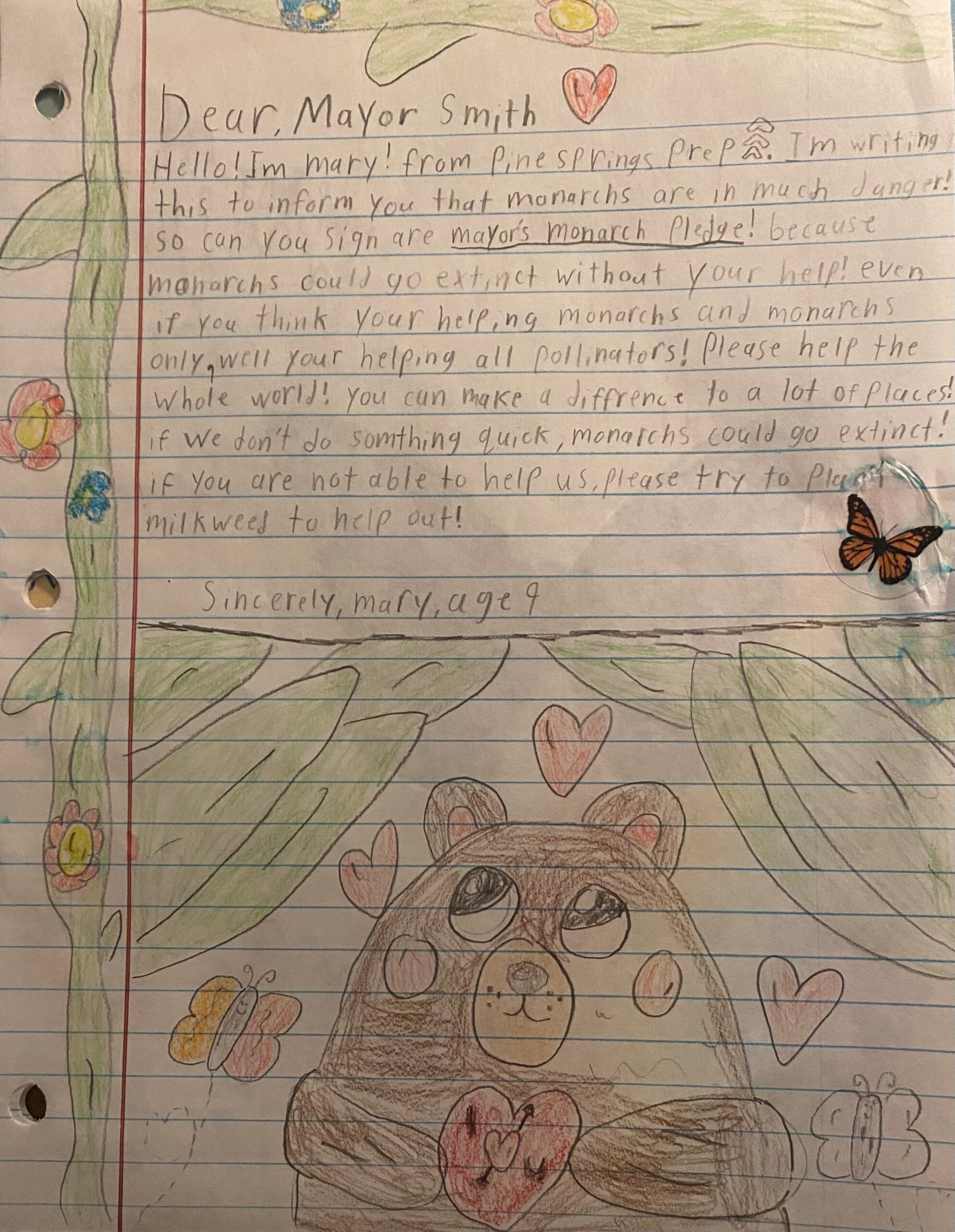
“When the mayors said yes to the pledge, it made me feel that anyone can stick up for pollinators and change the world – no matter their size!“
Mary M., age 9
Not only did Ms. Thompson’s promising third-graders motivate four additional mayors to sign the Pledge in 2023, they also took their pollinator advocacy to the next level. Ms. Thompson asked her students how they could do more for pollinators, and what they came up with was nothing short of remarkable.
Their first project, Pizza without Pollinators, was inspired by a 9 year-old student named Isaac. Isaac and his classmates designed stickers of a sauceless pizza crust with a QR code. The stickers were distributed to local pizza restaurants in Holly Springs, who then put the stickers on pizza boxes that were delivered into the community. “When local pizza lovers scan the code,” said Ms. Thompson, “it takes them to our Pollinator Protectors website to watch a commercial created and scripted by my third-graders, which explains why pizza would only be the crust without pollinators.”
The students’ witty public service announcement demonstrates how tomato sauce exists because pollinators help tomatoes grow. And the cheese that makes pizza so delicious? That’s produced by cows who largely feed on grains pollinated by bees and other pollinating insects. A world without pizza would be tragic, but the distressing reality of our agricultural system without pollinators goes far beyond a pizza-free diet. Research demonstrates that pollinators can be thanked for one-third of the food we consume, making bees, wasps, and butterflies critical to cultivating crops for global populations.
“Without pollinators most of our food supplies would be gone.“
Gnanashree S., age 9
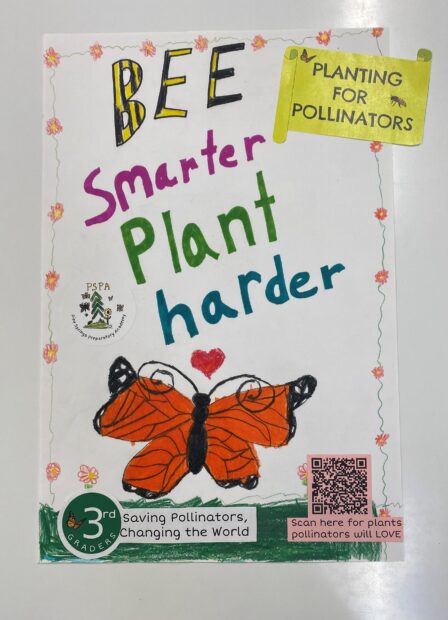
Ms. Thompson’s students also organized the BEE Smarter Plant Harder campaign – slogan created by Idali N., age 9. Hand-drawn posters were created and placed in local garden centers so that gardeners can make good choices for pollinators by purchasing pollinator-friendly plants. The posters include a QR code that takes you to a list of plants that pollinators love, all researched and presented by the brilliant third-graders.
“One of our greatest and most rewarding results from the Mayors’ Monarch Pledge was when the town of Apex, NC, chose as an ‘action item’ to change its policy on pesticides town-wide. You should have heard the cheers erupt when I told the kids that as a result of their letter writing, pesticides would no longer be used by the town!“
Ms. Katie Thompson
Last on the third-graders’ list for 2023 was the No Pesticide Pledge, initiated by Alex K, age 9. This powerful project encouraged people in the students’ local community and beyond to eliminate pesticides from their gardens and lawns.
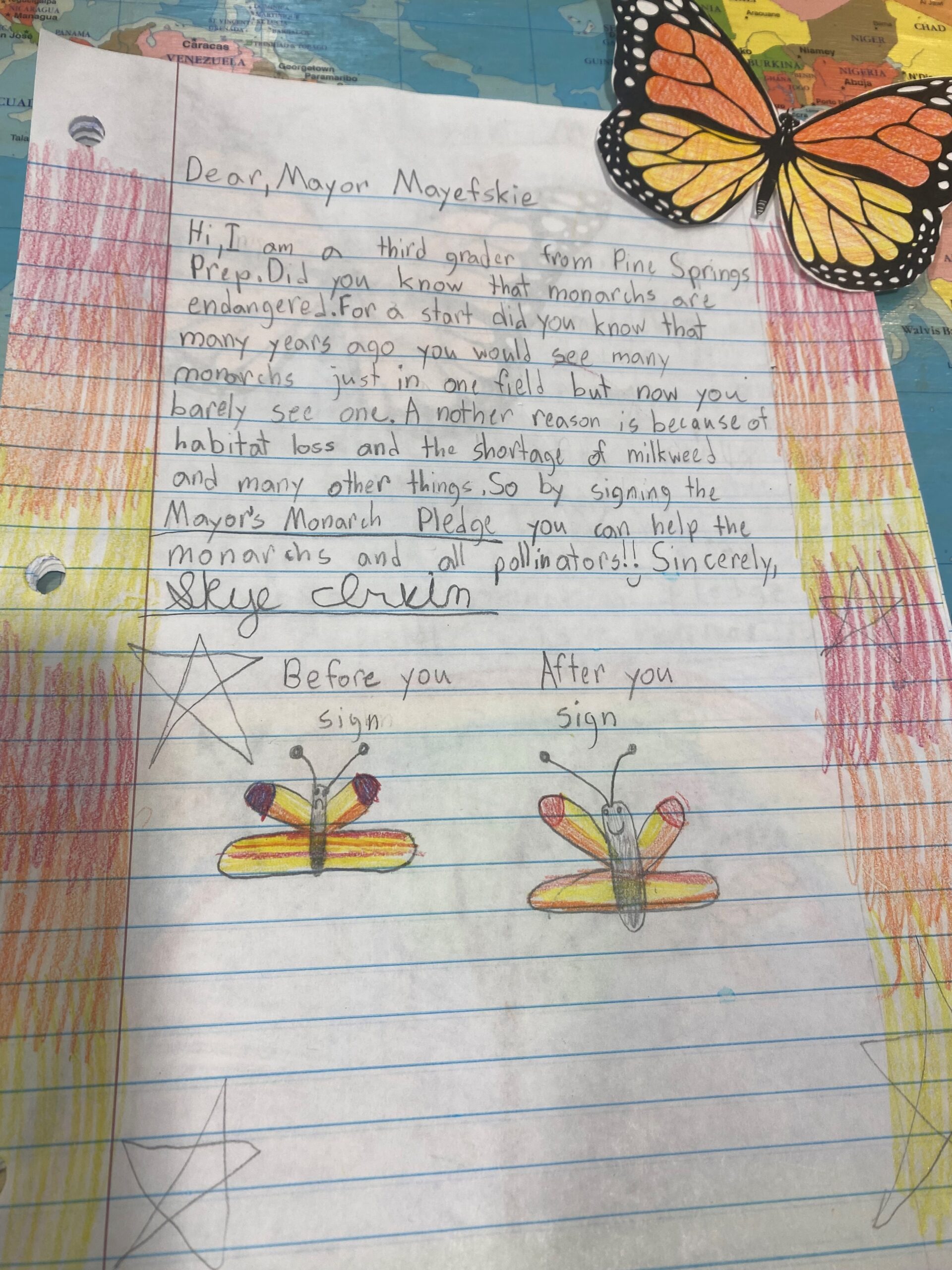
Pesticides, specifically the use of a particular group of insecticides known as “neonicotinoids,” harm pollinators and the surrounding environment by accumulating in the soil and negatively affecting flight ability in bees. Ms. Thompson’s students are well aware of the dangers of pesticide usage, and urge people everywhere to sign the No Pesticide Pledge today!
“[Saving the pollinators] means that I can help animals that have been treated like they did not even exist, but they help us so much! I can show that they need help and we now have to stand for the small.“
Cate L., age 8
Across the globe, young people are particularly vulnerable to the effects of climate change and pollution since their bodies and minds are still developing and they rely on adults for their safety and well-being.
However, as demonstrated by Ms. Thompson’s third-graders, young people are anything but helpless: it’s evident that today’s youth have loud, commanding voices with so much wisdom to share. Young people are pleading for change from adult leadership that prioritizes “the small ones” – like insects and other overlooked critters and, in some ways, themselves. It’s imperative that we heed their call to action, for their futures and ours. It’s up to us to provide the Knowledge, Compassion, and pathways for Action, that will lead to a better, more sustainable world.
“[Speaking up for pollinators] helped me find my personality and how I love pollinators so much – it kind of let me rise from my cocoon into a butterfly.”
Chloe A., age 8
From the insightful words of Ms. Thompson: “Teaching kids about this crisis – the key pollinators, why they are important, and why they are in trouble – starts an important conversation and ultimately leads to conservation. The kids are able to be a voice for pollinators and create real change.”
We can’t wait to see what Ms. Thompson’s third-graders accomplish in 2024 – we know they are capable of great things!
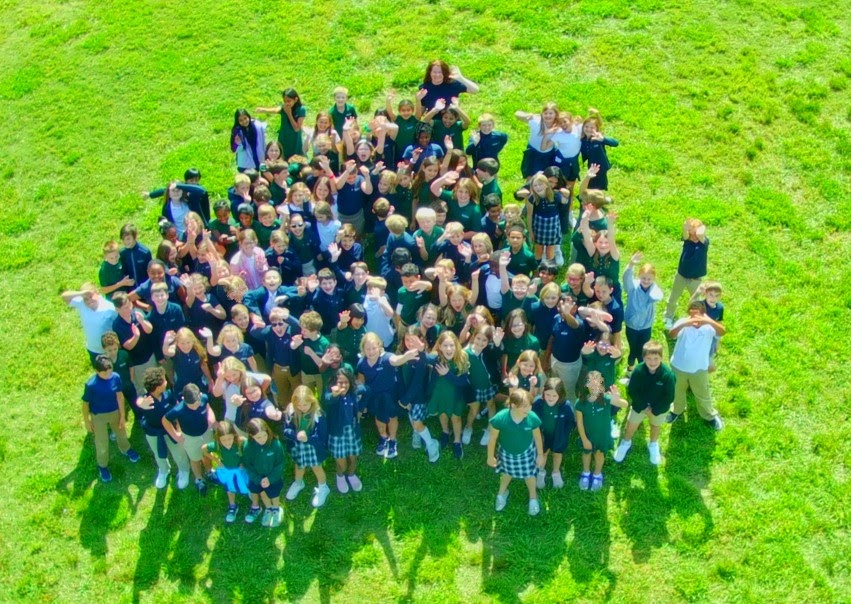
Learn more about National Wildlife Federation’s pollinator and monarch resources here, more about the Mayors’ Monarch Pledge here, and more about the Schoolyard Habitats® program here and here.


